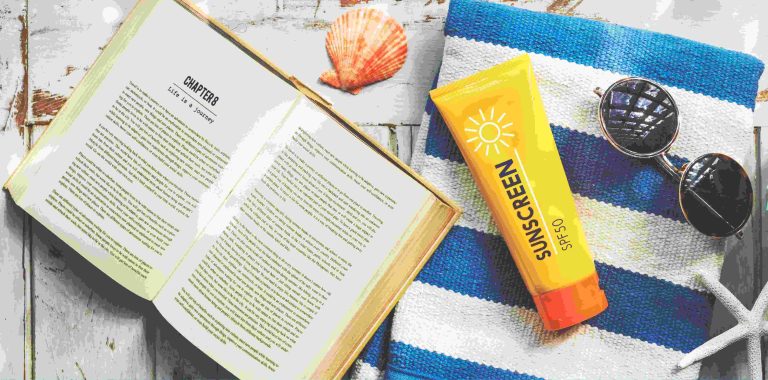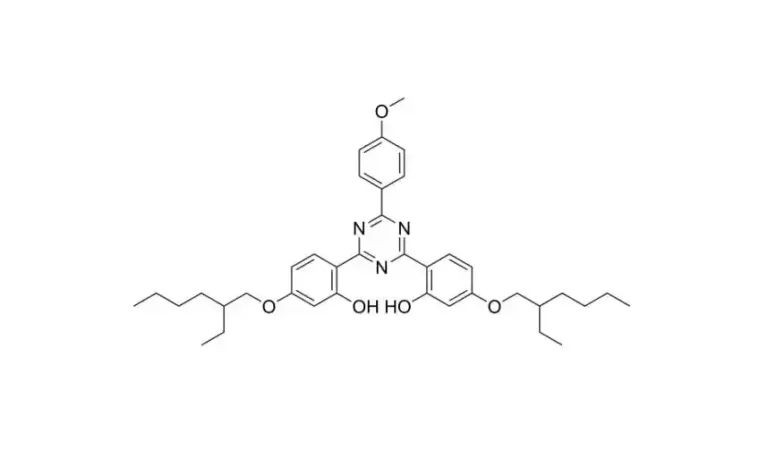
Sunscreens protect your skin against harmful ultraviolet radiation. UV filters are unique ingredients that guard you against UVA and UVB radiation. This blog simply explains the science behind UV filters. It describes their essential function of protecting the skin. It also demonstrates why they are essential to your daily routine in the form of skin care. Whether you are a skincare addict or want to make intelligent choices, an understanding of UV filters will make you appreciate skin health.
The Science Behind UV Filters

UV filters are substances that block UV rays from inflicting harm on the skin. They offer protection. This guards against risks such as burns, aging prematurely, or cancer. Sunlight harbors two forms of UV rays: UVA (315–400 nm) and UVB (280–315 nm). Both lead to various problems. Both are meant for UV filters to handle.
How UV Filters Work
UV filters work in two main ways:
- AbsorptionChemical UV filters, like avobenzone or octocrylene, soak up UV rays. They turn them into safe heat.
- Reflection and Scattering Physical UV filters, like titanium dioxide and zinc oxide, bounce UV rays away. They also spread them out.
These methods together provide full protection. This is called broad-spectrum coverage. It’s vital for guarding against UVA and UVB harm.
Types of UV Filters
UV filters fall into two groups based on their makeup and action:
| Type | Examples | Method | Advantages |
| Chemical | Avobenzone, Octocrylene, Bisoctrizole, Bemotrizinol | Takes in UV rays | Light, blends well, often used in strong sunscreens |
| Physical | Titanium Dioxide, Zinc Oxide | Pushes away and scatters rays | Kind to sensitive skin, works right away, safe for the environment |
Chemical UV filters feel smooth and mix easily. Physical filters are steady and less likely to irritate skin.
The Role of UV Filters in Skin Protection

Protection Against UVA Rays
UVA rays go deep into the skin. They cause wrinkles and loss of firmness. They also harm DNA, which may lead to skin cancer. UV filters like avobenzone and bemotrizinol block UVA rays well. They help keep your skin looking young and healthy.
Protection Against UVB Rays
UVB rays affect the skin’s top layers. They cause burns and raise the risk of skin cancer. UV filters like octocrylene and bisoctrizole stop UVB rays. They reduce immediate harm and help skin heal.
Broad-Spectrum Coverage
The best sunscreens mix UV filters for broad-spectrum protection. For example, using zinc oxide with chemical filters defends against both UVA and UVB rays. This lowers the chance of short-term and long-term skin damage.
Why UV Filters Are a Must-Have in Daily Skincare
Using UV filters every day is essential for healthy skin. Here’s why they matter:
- Stop Early AgingUV filters prevent the loss of collagen and firmness. They keep your skin smooth and free of wrinkles.
- Reduce Cancer RiskUV filters block harmful rays. This lowers the chance of skin cancers like melanoma.
- Suit All Skin TypesUV filters work for sensitive, oily, or other skin types. Everyone can use them.
- Boost Skincare ResultsUV filters support other skincare products. They stop UV damage that can weaken your routine.
Dermatologists suggest using broad-spectrum sunscreen with UV filters daily. This applies to all weather and skin tones. Even on cloudy days, 80% of UV rays can reach your skin. So, steady protection is crucial.
Innovations in UV Filter Technology
The science of UV filters keeps improving. It meets people’s needs for safety, strength, and care for nature. Recent changes include:
- Stable FiltersNew UV filters, like bisoctrizole, stay strong in the sun for a long time.
- Nature-Friendly OptionsPhysical UV filters, like titanium dioxide, are used in sunscreens safe for coral reefs.
- Mixed FiltersNew UV filters combine soaking up and bouncing rays. They offer better protection and feel nice on the skin.
These updates keep UV filters leading in sun protection. They balance strong performance with care for the environment.
About BFP: A Leader in UV Filter Manufacturing
At BFP, we take pride in manufacturing top-quality UV filters for cosmetics all over the world. We put innovative ideas and the environment first. BFP manufactures chemical UV filters and physical UV filters, including bisoctrizole, bemotrizinol, titanium dioxide, and zinc oxide products. Our advanced equipment and strict quality control ensure that our UV filters are of excellent quality. This helps sunscreen brands provide people everywhere with effective and safe protection.
FAQs About UV Filters
Q1. What Are UV Filters in Sunscreen?
A1. UV filters are key ingredients in sunscreens. They guard the skin by soaking up, bouncing, or scattering UVA and UVB rays. They prevent burns, aging, and cancer.
Q2. Are Chemical or Physical UV Filters Better?
A2. Both types work well but fit different needs. Chemical UV filters are light and great for daily use. Physical UV filters, like zinc oxide, are gentle for sensitive skin and kind to nature.
Q3. How Often Should I Apply Sunscreen with UV Filters?
A3. Put on sunscreen with UV filters every two hours. Apply it more often if you swim or sweat. This keeps protection strong.
Q4. Do UV Filters Protect Against All UV Rays?
A4. Broad-spectrum UV filters block both UVA and UVB rays. Always look for the “broad-spectrum” label on sunscreen packages. It ensures full coverage.
Take Action for Healthier Skin
Your skin deserves great care. UV filters are the secret to achieving it. Choose a broad-spectrum sunscreen with strong UV filters. This invests in your skin’s health and beauty for years. Contact us and check out products to improve your skincare habits.
You Might Like:
Top 10 UV Filter Ingredients in Sunscreens for Sensitive Skin
Which UV Filter is Best for Sunscreen Formulations: Soluble vs Insoluble
Photostability and Sunscreen: Why It Matters for Organic UV Filters?




